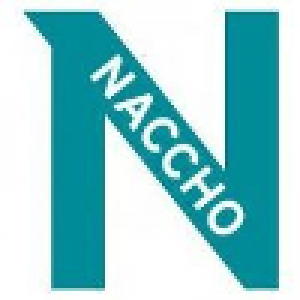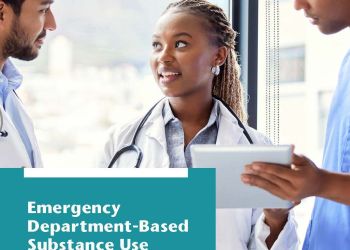“Adverse Childhood Experiences (ACEs) are linked to chronic health problems, mental illness, and substance misuse in adulthood.”
— More Than $300K Each Awarded to Community Based Organizations and Health Departments in Pomona, CA; Pueblo County; CO; Leonardtown, MD; Detroit, MI; Allegheny County, PA; Nashville, TN; and Cache County, UT —
Washington, DC, March 9, 2021 — With support from the Centers for Disease Control and Prevention (CDC), the National Association of County and City Health Officials (NACCHO), the voice of the country’s nearly 3,000 local health departments is pleased to announce the seven sites awarded funding and technical assistance for the implementation of evidence-based approaches through multi-sector, community based efforts to prevent and mitigate the harm of Adverse Childhood Experiences (ACEs) and the subsequent increased risk for Substance Use Disorder (SUD). The awarded cites are:
- Parents Anonymous Inc.; Pomona, CA ($450,00)
- Allegheny County Health Department; Allegheny County, Pennsylvania ($403,786)
- Meharry Medical College; Nashville, TN (($450,000)
- Catholic Charities Diocese of Pueblo/Pueblo’s Family Resource Center; Pueblo County, CO ($392,130)
- St. Mary’s Community Health Department; Leonardtown, MD ($449,995)
- The Youth Connection; Detroit, MI ($450,000)
- Utah State University. Cache County, UT (449,999)
As defined by the CDC, ACEs are potentially traumatic events that occur in childhood (0-17 years). They include experiencing violence, abuse, or neglect; witnessing violence in the home or community; or having a family member attempt or die by suicide. Also included are aspects of the child’s environment that can undermine their sense of safety, stability, and bonding such as growing up in a household with substance misuse, mental health problems, and/or instability due to parental separation or household members being in jail or prison
ACEs are linked to chronic health problems, mental illness, and substance misuse in adulthood. ACEs can also negatively impact education and job opportunities. However, ACEs can be prevented. Local health departments like these awardees have highly trained staff to help mitigate the impact of ACEs in the communities they serve.
Parents Anonymous Inc. ($450,00)
Located in Pomona, CA, Parents Anonymous Inc. primarily serves the Latinx community, which comprises 71% of the city’s population. Its parenting programs annually serve over 24,000 Latinx, Black or African American, and White parents, caregivers and their children who are primarily low income, have housing instability and food insecurity. Ninety percent (90%) of parents involved with Parents Anonymous have SUD and the remaining 10% are at high risk for SUD. Many of the moms and dads have children placed in foster care while treating their SUD and are successfully reunited with their children as a result of attending Parents Anonymous Programs. Pomona city has various social and structural determinants of poor health that contribute to health inequities. Such as, 23% of adults had difficulty accessing healthcare and 30% of adults were uninsured, contributing to its 19th
percentile ranking on the Healthy Places Index.
With this funding, Parents Anonymous aims to reach more diverse local mothers, fathers, and expectant parents with or at risk for SUD to help families remain together or increase reunification rates. Parents Anonymous will contribute to ACE prevention and mitigation by facilitating online weekly parent groups and children/youth groups. To prevent substance misuse, Parents Anonymous will develop comprehensive referral processes and implement outreach strategies to recruit parents with SUDs and link them to SUD treatment.
Allegheny County Health Department (ACHD)
($403,786)
Allegheny County, PA, consists of roughly 1.2 million people and contains the state’s largest city, Pittsburgh, with more than 300,000 residents. Most residents are White at 81.5%, 13.2% are Black or African American, and less than 3% are Asian or Hispanic. This county continues to experience the ongoing effects of the overdose epidemic with a 16% increase in fatal overdoses from 2018 to 2019. This county also experiences rising racial health disparities among Black or African American residents who are experiencing a higher and rising death rate at 18 to 24 per 100,000 compared to their white counterparts at half that rate. To mitigate ACEs and increase well-being, ACHD launched its Hello Baby Initiative. Using an innovative and data-driven approach, Hello Baby uses its Predictive Risk Model to identify individuals at risk for ACEs and match them to new/existing services.
With this funding, ACHD aims to better address Opioid Use Disorder/Substance Use Disorder treatment for women and families by expanding its Hello Baby initiative. ACHD will expand the ability of current evidence-based support programs to address substance use issues at the intersection of ACEs and SUD response through the Hello Baby program by pairing a community-based approach with specialized OUD/SUD expertise. Additionally, this funding will allow ACHD to broaden existing activity to include dissemination of local resources targeting primary care providers along with the best available evidence to prevent ACEs from occurring and lessen associated harms. Hello Baby will also increase its available SUD support (i.e., SBIRT, characteristics of children of persons who use substances, signs of addiction, etc.) through trainings for FC and Home Visiting staff. Lastly, ACHD will distribute ten mini-grants during the project period to support partners in preventing and mitigating the harms of ACEs and the subsequent increased risk for SUD.
Meharry Medical College ($450,000)
Meharry Medical College is situated in the greater Nashville area in the city’s most impoverished minority community, which is roughly 88% Black or African American residents. This community is significantly vulnerable to ACEs and opiate abuse as well as physical and mental health disparities. Two local zip codes experienced significant increases in both fatal and nonfatal drug overdose between 2016 and 2019, with a 43% increase in non-fatal overdoses and a 53% increase in fatal overdoses, ranking 13th highest in the nation. Meharry’s served community is impoverished, underserved, and includes many justice-involved youth and adults. Seventy-one percent of justice-involved male youth have reported experiencing three or more ACEs and, among Meharry’s population, each additional ACE increases the likelihood of violent offence by more than 35%, highlighting the urgency of addressing ACEs in this population.
With this funding, Meharry aims to improve its current programs and reach out to its four target populations: Meharry Addiction Clinic patients; high-risk high school students in the Metro Nashville Public School District; justice involved juveniles; and incarcerated and reentry adults. Currently, all four of these populations engage in Meharry’s StreetSolid CBT/SEL/TI curriculum, which is grounded in the foundations of Cognitive Behavioral Therapy and includes sessions on trauma and trauma-informed care. With this funding, Meharry plans to expand its StreetSolid programming in each target population by hiring additional staff and increasing the number of enrolled participants.
Pueblo’s Family Resource Center ($392,130)
Pueblo’s Family Resource Center is in Pueblo County, CO, where 43% of residents identify as Latinx and 13% of households speak a language other than English at home. Participants of the current programs disproportionately experience generational poverty, higher incidences of drug misuse, and trauma, including racial bias. These communities also have less access to education, proper healthcare, and opportunities to change the trajectory of their own lives. This region has some of the highest opioid-related deaths in the state and has three times the state rate of age-adjusted heroin-related overdoses from 2011 to 2016, the highest out of any Colorado county.
With this funding, Pueblo’s Family Resource Center aims to strengthen and expand its CCDP’s (Catholic Charities Diocese of Pueblo) Support Connect and Nurture program (SCAN), the only comprehensive program in Pueblo that addresses ACEs. According to a study of the SCAN intervention, patients participating in the intervention reported an average of 2.5 ACEs, with 30% reporting 4 or more ACEs. The most reported ACE among participants was parental divorce or separation, substance abuse in the household, and emotional abuse. Studies and environmental scans demonstrate the need for a multi-sector response to increase Pueblo’s capacity to strengthen families impacted by ACEs, SUD, and overdose. Expansion of SCAN will unite six agencies under one common goal: to build community engagement around the importance of reducing the transference of ACEs from parent to child through a multidisciplinary, two-generation approach in order to reduce substance misuse and drug overdose. Pueblo aims to achieve this goal with four key objectives: prevention through systems coordination; prevention through crisis intervention; prevention through multi-disciplinary team care and family development; and prevention through family strengthening.
St. Mary’s County Health Department ($449,995)
St. Mary’s County Health Department (SMCHD) is in Leonardtown, MD, and serves roughly 115,000 people. Most residents in St. Mary’s County are White at roughly 82% while 14.3% are Black or African American, 4.8% are Hispanic, and 2.8% are Asian. According to the Maryland Behavioral Risk Factor Surveillance System (BRFSS) conducted in 2018, roughly 65% of adults living in St. Mary’s County have experienced one or more ACEs and 29% have experienced three or more. Additionally, among high school youth in St. Mary’s County Public Schools who completed the same survey, 31.4% reported living with a person with a mental illness; 23.1% reported that a household member had been incarcerated; and 24.6% had a household member demonstrate signs of verbal abuse. Currently, SMCHD implements various evidence-based programs and will use funds to expand upon existing programs. SMCHD will contribute to ACE prevention and mitigation efforts by expanding its Violence Injury Trauma (VIT) Task Force, VIT Action Team, and Department of Juvenile Services ACE’s Evaluation Program. SMCHD will also mitigate ACEs by implementing its Life Skills Training and Youth Mentoring Programs among youth while targeting families and parents through its Healthy Families and Strong Beginnings program. To prevent and mitigate substance use, SMCHD will execute its Academic Detailing Program which will work with local clinicians to implement quality improvement strategies, substance misuse disorder screening, and use of medication assisted treatment.
The Youth Connection (TYC) ($450,000)
The Youth Connection is in Detroit, MI, who’s population represents the largest percentage of Black or African American people in any U.S. city. Findings from a 2020 Michigan study found that 40% of children in Detroit have 2 or more ACEs and 27% of Detroit youth experienced cases of child abuse and neglect compared to 17% state-wide. Additionally, 43% of Detroit children were victims of violent crimes, according to data from the Detroit Police Department. Moreover, disparities in health care access, education, employment, housing and food security are facilitated by structural violence in Detroit and are reflected in the conditions that increase youth risk of abuse and neglect.
The Youth Connection’s proposed project will work to achieve three main objectives: mitigate the long-term effects of early trauma while growing public awareness about substance misuse through the Strengthening Families 10-14 program (SF 10-14); educate primary care providers about ACEs through academic detailing; and increase the capacity of community members to respond to an opioid overdose emergency. With this funding, The Youth Connection plans to reinforce its Strengthening Families program by adapting the curriculum to a virtual format and provide participants with the appropriate technology and resources needed to engage in SF 10-14 remotely. Additionally, funding for this project will allow TYC to provide EVB naloxone administration training to up to 1,000 lay community members who may be likely to witness and/or respond to an opioid overdose. Lastly, TYC will provide academic detailing services to primary care physicians practicing in Detroit by hosting three Continuing Education virtual events and provide EVB clinician education.
Utah State University ($449,999)
Cache County, UT, is home to roughly 120,150 people and almost 90.2% of the population is White while 10.8% identify as Hispanic/Latino. Although most of the population is White and Latino children only make up 17.3% of the population in Utah, they accounted for almost 26% of intakes to the Juvenile Justice system in 2019 with much more severe punishment for behavior when compared to their white counterparts. Approximately 45% of children under the age of 18 in Cache County have experienced at least one ACE, with almost 20% experiencing at least 2, a higher rate than the entire state of Utah. Latino families, especially those who are immigrants, are more likely to experience trauma.
With this funding, Utah State University aims to expand their existing program, Better Together, a parent-child intervention based on ACEs research and Health Outcomes through Positive Experiences (HOPE) Science. Better Together engages families and children in lessons that include mindfulness, child development and behavior, self-regulation, the potential impact of trauma, and effective discipline strategies in order to prevent and mitigate ACEs. Initially made for English speaking participants, Utah State University will use funding to adapt and translate Better Together to Spanish to serve its vulnerable Spanish speaking clients, who are requesting the program.
###
About NACCHO
The National Association of County and City Health Officials (NACCHO) represents the nation’s nearly 3,000 local health departments. These city, county, metropolitan, district, and tribal departments work every day to protect and promote health and well-being for all people in their communities. For more information about NACCHO, please visit www.naccho.org.




